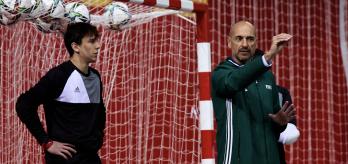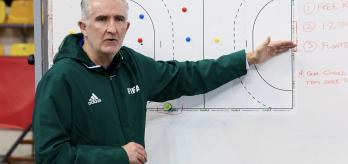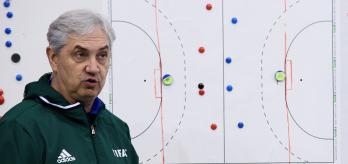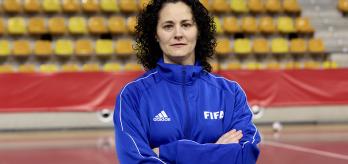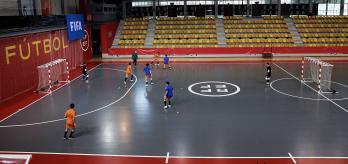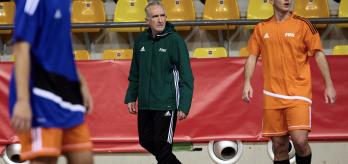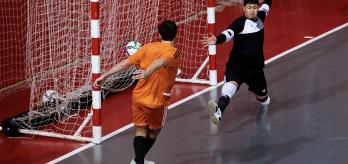In a wide-ranging interview, García discusses how the role of futsal goalkeepers has changed, how coaching needs to evolve to accommodate those changes and why futsal goalkeepers are complete players.
Watch interview
Read interview summary
Part 1: The attributes of futsal goalkeepers
In the first part of the interview, García talks about the key attributes of futsal goalkeepers. After explaining that they need to have a multifaceted skill set, he proceeds to break those skills down into categories. He then discusses the psychological aspect of goalkeeping, including the fact that a goalkeeper’s mistakes will often lead to a goal. This makes mental strength essential.
García also covers the physical characteristics of goalkeepers. He notes that they tend to have a big, imposing frame and that they have to be quick, agile and flexible. From a technical point of view, he points out that goalkeepers are the complete package, as they need to possess the skills of outfield players, besides a mastery of position-specific tasks like handling and shot-stopping. In that respect, he explains how rule changes have increased goalkeepers’ involvement in build-up play.
Part 2: Development of technical and tactical requirements
Here, García highlights the development of technical moves for futsal goalkeepers. He explains that goalkeeping has become more adaptable and varied, with goalkeepers having individual styles. While specialists between the posts, they have now also developed attributes to contribute to the attacking phase of futsal. They need to be able to dribble, control the ball and shoot, and have a wide passing range.Because of this, García believes that goalkeepers are the most complete players on the futsal pitch.
Tactically, García explains that it is important to focus on developing intelligent goalkeepers beyond the concept of making saves and distribution. He stresses the importance of goalkeepers being proactive and reading the game. This includes taking the initiative and making decisions. He emphasises how coaching needs to be in place to develop these skills.
Part 3: Effective training
García thinks that recent approaches are fostering greater autonomy in players and that goalkeepers’ adaptation is a part of this. To create intelligent goalkeepers, García believes that real-game scenarios are important, but argues that there are other factors. He stresses the relevance of training that simulates competitive games. Moreover, game analysis can reveal areas that a goalkeeper needs to work on. He also notes that coaches have to think about why certain skills are needed, and that learning contexts must be provided to make such skills familiar and habitual.




